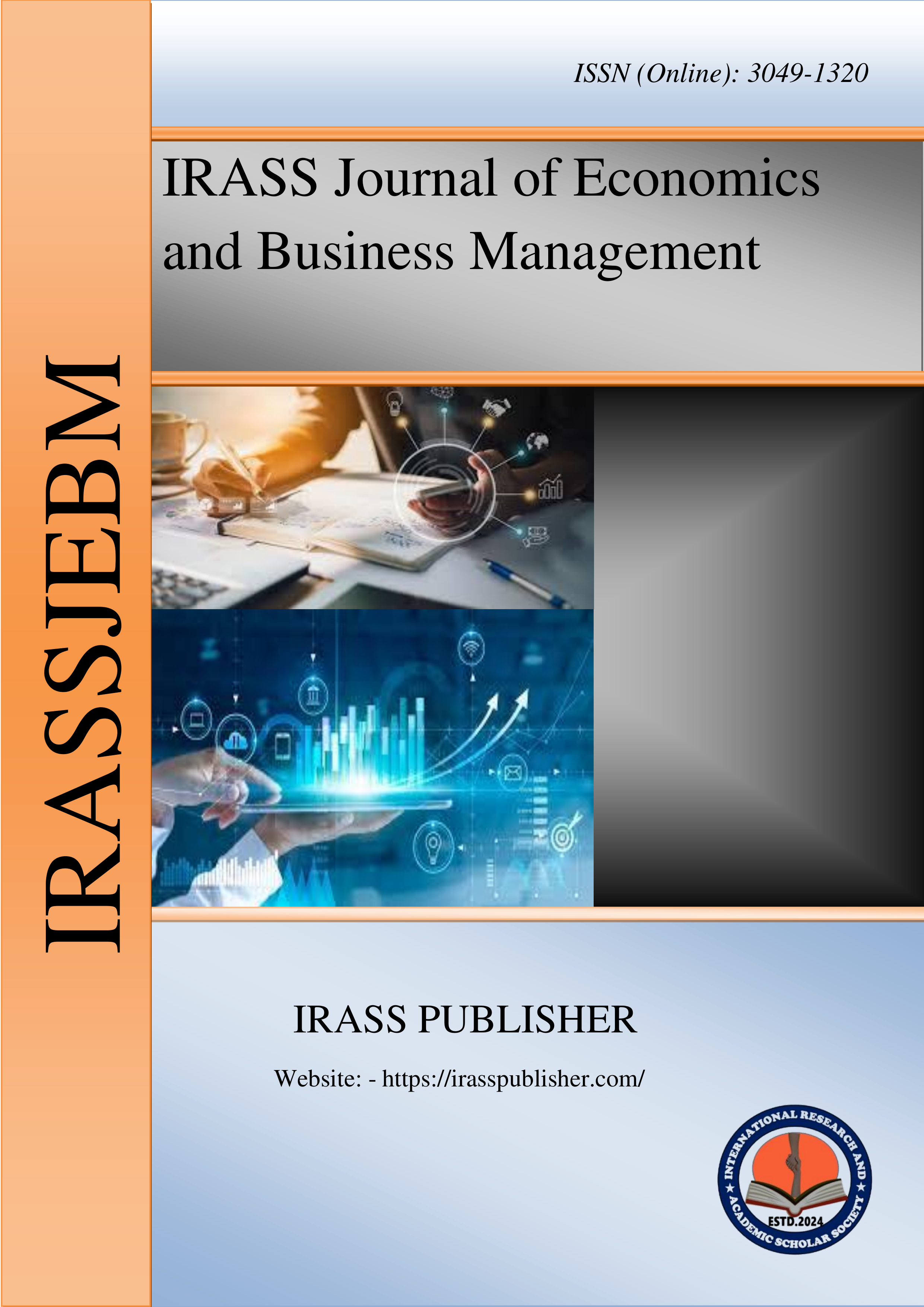FAIR VALUE MEASUREMENT AND PROFITABILITY OF QUOTED CONSUMER GOODS FIRMS IN NIGERIA
Sr No:
Page No:
1-11
Language:
English
Authors:
Adeleye Tope James*, Micheal Martins Olurotimi, Alapo Tope, Jafar Sali, Kalu Sandra Oluchi, Gazali Yusuf Oladimeji, Abdulsalam Muizz Onoruoiza
Received:
2025-03-13
Accepted:
2025-03-31
Published Date:
2025-04-04
GoogleScholar:
Click here
Abstract:
One factor that determines a company's marketability and net worth is the asset's
fair value. It is a logical and objective assessment of the prospective market value of a
company's stock, service, asset, or good (commodity). The study looked at the connection
between Nigerian consumer products companies' profitability and fair value measurement. The
study's ex-post facto research design includes all twenty-one (21) consumer goods companies
listed on the Nigerian Exchange Group as of December 31, 2023, as the population. A sample
size of fifteen (15) consumer goods companies was chosen using the purposive sampling
technique. The information utilized was taken from consumer goods companies' annual reports
that were listed on the Nigerian Exchange Group (NGX Group). The twelve-year span from
2012 to 2023 was covered by the data. The analysis method employed in the study was the
Generalized Regression Model. The results of the study showed that taxes and depreciation
(DEP) significantly increase the profit after taxes of consumer goods companies in Nigeria,
whereas inventory (INV) had a negligible negative impact. As a result, the study suggested that
management of consumer goods companies should focus on increasing the fair value of their
companies through asset management and suitable policies, embrace best practices that would
increase share prices and sustain higher book values of the companies, and use depreciation to
replace outdated assets, stabilizing the companies' net worth.
Keywords:
Fair Value Measurement, Profitability, Consumer Goods Firms, Nigeria
Journal: IRASS Journal of Economics and Business Management
ISSN(Online): 3049-1320
Publisher: IRASS Publisher
Frequency:
Monthly
Language:
English

